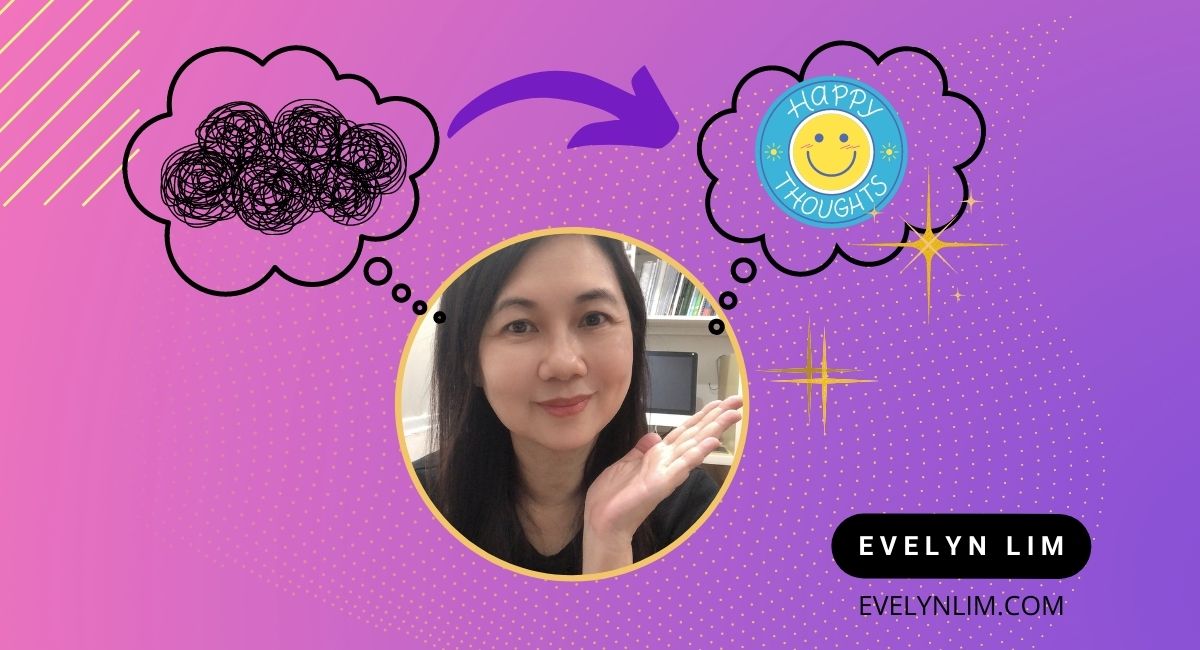10 Automatic Negative Thoughts that You Need to Let Go of

Do you find yourself having negative thoughts that seem to pop in automatically?
Our minds are often programmed to think more negatively that positively. Automatic negative thoughts are often cognitive distortions. The American Psychological Association defines cognitive distortions as “faulty or inaccurate thinking, perception or belief.” For some people, cognitive distortions are a pattern of thinking that can lead to chronic anxiety, depression, and behavioural problems such as substance abuse.
Most of us have not been trained to observe our thoughts. It’s possible to be more aware about what our behaviour is like or even how we are feeling. Yet, what is driving our behaviour are our feelings that are also influenced by our thoughts.
Cognitive distortions formed the subject of study by Dr Aaron Beck. He proposed that we challenge our irrational and faulty thinking. Once we can break free from them, we are in a better position to change our behaviour.
I have listed some of the faulty ways of thinking below and would use them to help my clients where appropriate. For a start, look through the list below and see if you can identify any patterns that your mind is engaged in…
1) All-or-nothing thinking
Seeing each event as completely good or bad, right or wrong, a success or a failure.
“If I don’t score for this exam, I consider myself a failure.”
2) Arbitrary inference
Concluding that something negative will happen or is happening even though there is no evidence to support it.
“My neighbour did not smile when I saw her this morning. She must hate me.”
3) Disqualifying the positive
Rejecting positive experiences.
“Anyone can draw. It’s no big deal.”
4) Emotional reasoning
Assuming that negative emotions are accurate without questioning them.
“I feel ugly, so I must be ugly.”
5) Labeling
Placing a negative, global label on a person or situation.
“I can’t get anything right, so why bother trying?”
6) Selective abstraction
Focusing on a single, irrelevant, negative aspect of a situation while ignoring more relevant and important aspects.
“So what even if I got a raise and a promotion? Sadly, I now have to report for work an hour earlier.”
7) Overgeneralisation
Applying a negative conclusion from one area to other unrelated areas of one’s life.
“I did poorly on my Math test, so I won’t do well in my other subjects too. I should just drop out of school.”
8) Personalisation
Attributing negative events to oneself without reason.
“My parents are upset because they have an idiot for a daughter.”
9) Magnification and minimisation
Exaggeration when evaluating performance.
Magnification: “I got an A-, instead of the A+ I wanted. I must be a total failure.”
Minimisation: “I may have made it to the dean’s list, but it is no big deal.”
10. Should, Ought, Must
Using “should”, “ought”, or “must” statements can set up unrealistic expectations. It involves operating by rigid rules and not allowing for flexibility.
“I shouldn’t get angry.”
“People should be nice to me all the time.”
Reframing Automatic Negative Thoughts and Integration in a New Paradigm
Obviously, once you have identified the distortion, reframe to a more positive or empowering thought.
It is best to let go of chronic beliefs that keep us stuck in unhealthy behaviour. Beliefs are simply thoughts that we think over and over again and have internalised. In fact, I recommend applying cognitive processing and belief change after a somatic release with EFT. You are likely better able to embrace and integrate a new way of thinking as soon as you’ve released your negative feelings.
What is crucial is “integration”. It helps if a change is integrated at an energetic level. Hence, you don’t just “know” intellectually what the positive way of looking at things is but you are able to truly adopt a new belief or paradigm in your energy system.
Reach out to me if you’d like to work together. Apply for a discovery call here.
Love and abundance always,
Evelyn Lim
Accredited EFT Practitioner
Transformation Coach


